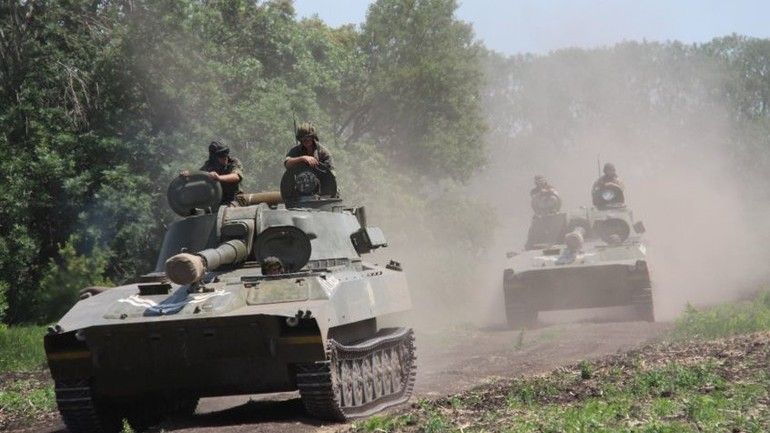Geopolitics
Ukrainian Troops Killed in Donbas. Will the Grad Multiple Rocket Launchers and Gvozdika Howitzers Destabilize Kiev?

Pro-Russian forces are still attacking the Donbas positions, taken by the Ukrainian Army. As a result of those attacks, at least three Ukrainian soldiers were killed, seven of them were wounded in the last couple of days. Armament banned by the Minsk arrangements was used against the government forces, including the 2S1 Gvozdika howitzers and BM-21 Grad rocket launchers.
According to the information provided by Col. Olexandr Motuzanyk, three Ukrainian soldiers were killed, and another seven were wounded, during the battle against the Pro-Russian forces. As it was noted by Reuters, the above losses are the first ones that are related to the Ukrainian forces, counting from mid-November, last year. On Monday, more than 200 rounds hit the Ukrainian positions. The attacks took place in the Lugansk and Donetsk districts, including the Mariupol region, or the village of Pisky, located close to the Donetsk airport.
According to the official information provided by the Ukrainians, the ceasefire was breached 79 times on Monday, another 60 attacks took place on Tuesday. The pro-Russian forces use heavy weaponry, banned by the Minsk memorandums, including the BM-21 Grad Multiple Rocket Launch Systems, 2S1 Gvozdika self-propelled howitzers or 120 mm mortars. The positions taken by the Ukrainians are also shelled with the use of ATGW systems.
The latest reports suggest that Russia continues its policy, assuming that military pressure is imposed on the Donbas area. This does not mean that the “Separatists” are going to plan a large scale offensive which could result in a reaction on the part of the international community. However, they will surely be driven towards maintaining the conflict and the state of destabilization. Kiev’s society and economy need to bear the burden related to involvement in the ongoing armed conflict.
The above means that there is a need to have combat units deployed at the front line. The soldiers often have to deal with bad conditions in the field. Operations carried out by Moscow, in an obvious way, prevent the Ukrainian authorities from carrying out the required reforms, reconstruct the economy, and may further destabilize the situation in the country. Moreover, the situation in which the inhabitants of the area of battle are still remains tough. This makes the position in which the Kiev authorities are placed even worse.
The Ukrainian Parliament just recently has rejected a request for PM Yatsenyuk, nonetheless, the situation still remains tense, while the “frozen” conflict has a contributing effect on further destabilization. The Western players shall intensify their assistance provided for the Kiev authorities, including the economic assistance, so that probability of a “destabilization” scenario is minimized, and situation in which the Pro-Russian Forces take over the power – excluded. Considering the effectiveness of the efforts made by the Ukrainian government, one should remember that Kiev is at war, and the Ukrainian economy needs to support the actions taken by the government. This certainly hampers the implementation of the required reforms. Failure within that scope would have results which are hard to predict, particularly when it comes to the Central-Eastern Europe.
